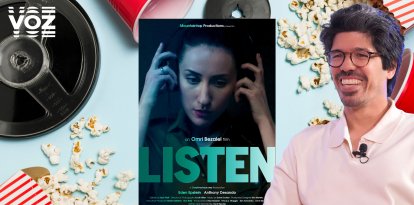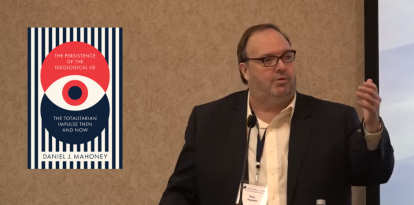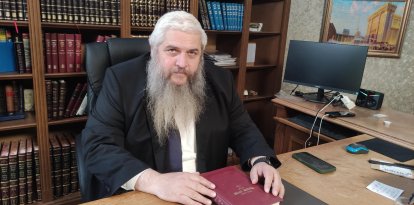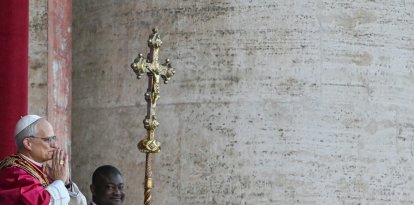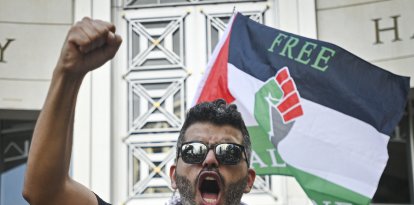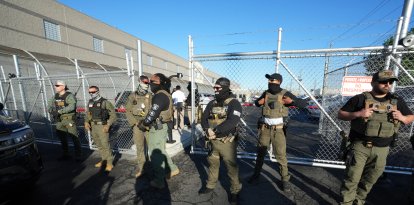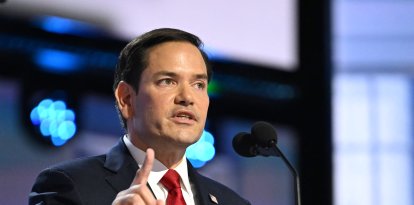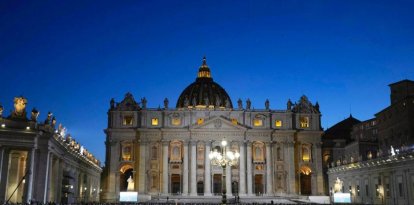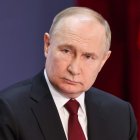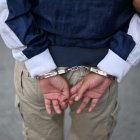Why give your life for Freedom? Navalny answers from beyond the grave with his posthumous autobiography: 'Patriot'
"Putin's most feared man" dedicated his final years to bearing witness to his battle against the Russian autocrat. The book answers questions about his struggle and motivations.
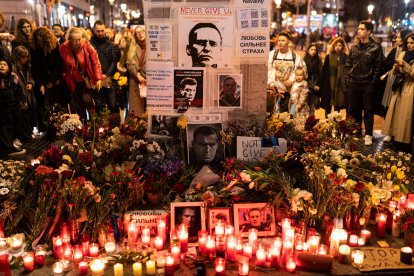
Memorial to honor Alexei Navalny
Alexei Navalny died twice for Freedom. The first time, he was poisoned with novichok on a plane from Tomsk, Siberia, to Moscow. The second, in an inhospitable, remote and incommunicado (or, in Russian terms, Siberian) prison colony.
After months of rehabilitation in Germany (a sequence of pains, hallucinations and exercises to relearn his own name, how to write, who his wife was...), Navalny decided to return to the clutches of the regime that had murdered him the first time. Why did he return for seconds?
Vladimir Putin had him killed once, and he could do it again. And again, and again, and again... Why put himself at his mercy?
Self-delusion? Unbridled optimism? Martyr's vocation? He was no meek and mild lamb, ready to lie down on the pyre. In the first minutes of his Oscar-winning documentary ("Navalny," 2022) he dismisses all those simplistic hypotheses: Alexei, he is asked... You may dislike me... If they killed you, if they succeeded, what message would you leave for the Russian people? Come on, Daniel, retort. It sounds like you're making a movie in case I die... I'm willing to answer (he would do it later), but, please, let the movie be something else.
"Navalny's good news is that 'Russia will be happy.' Not just prosperous, orderly... Happy.'"
It wasn't. Authorities at the infamous Yamalo-Nenets prison notified the death of "Putin's most feared man," as his allies called him, on Feb. 16, 2024. Why did he return to Russia, if...?
Eight months after his death, a little more than seven months after his burial, Navalny himself offers us a 600-page answer in his posthumous autobiography "Patriot" (Knopf, 2024). The text opens the doors to his thoughts and of the lethal prisons where he was held for three years (thus going where the highly recommendable documentary does not).
The self-telling of the Russian dissident's life is built from usual chapters, brief notes in the form of a prison log, posts on Instagram, transcripts of his statements in trials both regular (in frequency) and irregular (in procedure). That arrangement, forced because he "writes while he lives," gives a changing rhythm, fast-paced or leisurely, in accordance with the situation. But not even the most restful chapters are written from the comfort of retrospection and retreat. He writes from a hospitable German room, where he is recovering from novichok; he writes from a Russian cell, where they requisition his paper or, if they want to, do not hand it over to his lawyers.
Patriotism, according to Navalny
To each assassination attempt on the opposition leader corresponds a life; to each life, a struggle. The first is his public struggle, mowed down by the Kremlin's patent nerve agent. The second, returned to mother Russia, three years in prison, is his private, internal struggle. The cut, of course, is not clean. His electoral and anti-corruption campaigns are nourished by copious personal reflection, and from prison he also has some contact with the outside through judicial statements and conversations with his lawyers. But the actions of his campaign for Freedom remain as secluded as he was: to answer conscientiously the flood of letters of support, not to shout at the security guard whose job it is to kill his spirit little by little, to celebrate his wedding anniversary as best he can. To write his autobiography.
Without detracting from his first life (very interesting), his second is the most surprising, and the most precious contribution of "Patriot." Because, attenuated by his action, it shines a truth often covered up in the fight against the dazzling delirium of dictatorships: it is as external as it is internal.
During one of his many trials, the dissident asks the judge, the prosecutors, the accusers, why they are "constantly looking down at the table." Guilt, he answers, they feel guilt. And he explains, "We are fighting for the hearts and minds of those who simply stare at the table and shrug their shoulders."
Thus, Navalny distinguishes Russia from Putin, the homeland from the state. Thus, he can claim for himself the title of "Patriot."
And here, Navalny's good news: "Russia will be happy." Not only prosperous, orderly... Happy. The change he promotes is intimate as well as public, in "hearts and minds." He puts this smile into practice that is out of tune with the dismal prison system that tries to shut him down. His humor, which oozes in interviews, posts on social media and videos for the Anticorruption Foundation, is strewn throughout the autobiography, even in his last moments ("I am your new Santa Claus," he sneers about his 20-day beard in the Arctic prison where he will die). (Perhaps to be expected, on the other hand, in someone who showed as much enthusiasm for "Rick and Morty" as he did for the classics.)
A reason
It offers many answers to the pointed reason of his return and the general reason for his activism. It is as much rational as it is emotional, perhaps even spiritual and certainly religious. Even if the biography serves to try to unravel, it is worth questioning the format itself: Is 600 pages enough to explain a life, and does an account ever capture the whole phenomenon?
Sometimes he appeals to civic or political duty (he promised to return to the voters, who need at least one leader who does not lie to them), sometimes to the love of his loved ones and their sense of rootedness, sometimes to religion. Different languages for the same idea. Of all, one:
"Navalny, why is everyone telling you to 'stay strong,' 'stick it out,' and 'grit your teeth?'" he quotes from prison a letter from a supporter: "Didn't you say a while back in an interview that you believe in God, and it says in the Bible, 'Blessed are those who hunger and thirst for righteousness, for they shall be fulfilled.' Well, that's great. You've got it made!"
"And I thought," Navalny writes: "How about that! How well this person understands me."
RECOMMENDATION
